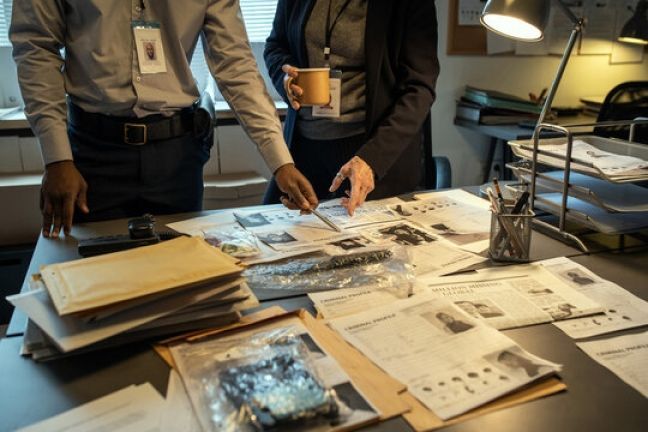The Future of Private Investigation: AI and Technology Integration
Introduction
This article delves into the intricate web of change that AI and Technology have woven into the fabric of private investigation. From streamlining processes to enhancing analytical capabilities, the impact of these advancements reaches every corner of the profession.
As we navigate the intricacies of this evolving field, we will explore the current state of private investigation, the rise of AI technologies, the seamless integration of cutting-edge tools, and the ethical considerations that accompany these transformative shifts.
Join us on a journey through the digital frontier of private investigation, where the convergence of human expertise and technological prowess is not only redefining the investigative landscape but also posing new questions about privacy, ethics, and the delicate balance between man and machine.
As we unlock the mysteries of the future of private investigation, it becomes evident that the synergy between human intuition and artificial intelligence is not just a trend but a fundamental shift that will shape the profession for years to come.
Current Landscape of Private Investigation

Rise of Artificial Intelligence in Private Investigation
The landscape of private investigation is undergoing a paradigm shift with the rise of Artificial Intelligence (AI). As technology continues to advance at an unprecedented pace, AI is increasingly becoming a powerful ally for private investigators, augmenting their capabilities and redefining the scope of what is possible in the field.
-
Overview of AI Technologies:
- Machine Learning Algorithms: AI systems leverage machine learning algorithms to analyze vast amounts of data and identify patterns. This ability is invaluable for uncovering hidden connections and anomalies in investigations.
- Natural Language Processing (NLP): NLP allows AI systems to understand and interpret human language, enabling the analysis of textual data from diverse sources such as social media, emails, and online forums.
- Computer Vision: AI-powered computer vision facilitates the analysis of visual data, including images and videos. This technology enhances surveillance capabilities and aids in the identification of individuals and objects.
-
Benefits of AI in Private Investigation:
- Data Analysis and Pattern Recognition: AI excels at processing and analyzing large datasets, enabling investigators to extract actionable insights more efficiently. Pattern recognition algorithms can identify trends and anomalies that might elude human investigators.
- Automation of Routine Tasks: Mundane and time-consuming tasks, such as sorting through vast amounts of data or monitoring surveillance footage, can be automated with AI. This frees up human investigators to focus on higher-level decision-making and strategic analysis.
- Enhanced Decision-Making Capabilities: AI systems provide real-time analysis and support, aiding investigators in making informed decisions swiftly. The combination of AI’s analytical prowess and human intuition creates a dynamic and effective investigative partnership.
-
Real-world Applications of AI in Private Investigation:
- Predictive Policing: AI algorithms can analyze historical crime data to predict potential crime hotspots, allowing investigators to proactively allocate resources.
- Behavioral Analysis: AI tools can analyze behavioral patterns to identify suspicious activities or deviations from normal behavior, providing valuable insights into surveillance scenarios.
- Social Media Monitoring: AI-powered tools can scan and analyze vast amounts of social media data to gather intelligence, track individuals, and uncover connections relevant to investigations.
-
Challenges and Ethical Considerations:
- Privacy Concerns: The extensive use of AI in surveillance raises concerns about privacy rights. Striking a balance between effective investigation and protecting individual privacy becomes a critical consideration.
- Bias and Fairness: AI algorithms may inherit biases present in training data, leading to potential ethical issues. Ensuring fairness and transparency in AI applications is essential for maintaining ethical standards.
The rise of AI in private investigation signifies a transformative era where the fusion of human expertise and artificial intelligence enhances the investigative process. As we explore the seamless integration of these cutting-edge technologies in the next sections, it becomes evident that AI is not merely a tool but a catalyst for innovation in the field of private investigation.
Technological Integration in Private Investigation

Training and Adaptation for Private Investigators
In the era of technological integration and artificial intelligence, private investigators are faced with the imperative to adapt and embrace new skills. The training and development of private investigators have become critical components in ensuring that professionals in the field are equipped to leverage the benefits of advanced technologies while maintaining the ethical standards and expertise required for effective investigations.
-
Necessary Skill Sets for Modern Investigators:
- Technological Proficiency: Private investigators must develop a solid understanding of the latest technological tools and platforms relevant to their field. This includes proficiency in using surveillance technologies, data analytics software, and case management systems.
- Understanding AI Algorithms: As AI becomes an integral part of investigative processes, investigators need a foundational understanding of AI algorithms. This knowledge empowers them to collaborate effectively with AI systems, interpret results, and ensure the ethical use of technology in investigations.
-
Training Programs and Educational Resources:
- Continuing Education for Investigators: Given the rapid evolution of technology, private investigators must engage in continuous learning. Specialized courses, workshops, and seminars provide opportunities for investigators to stay abreast of emerging trends and advancements.
- Certifications in AI and Technology: Recognizing the need for specialized knowledge, certifications in AI and technology for private investigators are becoming increasingly valuable. These certifications validate an investigator’s proficiency in leveraging technology for investigative purposes.
-
Adapting Investigative Techniques:
- Incorporating Digital Forensics: With the prevalence of digital evidence, investigators need to incorporate digital forensics techniques into their skill set. This includes the ability to recover, analyze, and preserve digital evidence in a forensically sound manner.
- Open-source Intelligence (OSINT): OSINT skills are crucial for investigators to harness information available on the internet legally. Training in online research, social media analysis, and data extraction from public sources enhances the depth and breadth of investigations.
-
Ethical Considerations in Technology Use:
- Privacy Protection: Investigators must be trained to navigate the ethical considerations surrounding privacy in the digital age. This includes understanding the boundaries of surveillance and respecting individuals’ rights.
- Bias Mitigation: As AI systems may carry biases from training data, investigators should be trained to recognize and mitigate bias in their analyses, ensuring fair and unbiased investigative outcomes.
-
Practical Application Exercises:
- Simulation Training: Simulating real-world scenarios through training exercises allows investigators to apply their skills in a controlled environment. This hands-on experience prepares them for the challenges they may encounter in actual investigations.
As private investigators undergo training and adaptation, they position themselves as versatile professionals capable of seamlessly blending traditional investigative methods with cutting-edge technologies. This section explores the proactive steps investigators can take to stay ahead of the curve, emphasizing the importance of continuous learning and ethical considerations in the ever-evolving landscape of private investigation.








